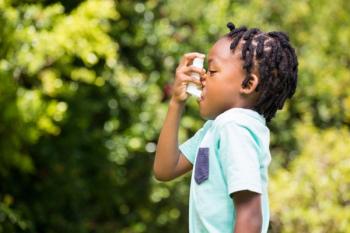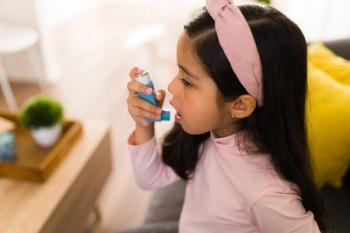
- Consultant for Pediatricians Vol 6 No 2
- Volume 6
- Issue 2
How Reliably Do Children Report Asthma Symptoms?
How old does a child need to be before we can count on the accuracy of his or her response?
How old does a child need to be before we can count on the accuracy of his or her response?
One of the most common illnesses we treat in general pediatrics is asthma--often in children who have not yet entered their teen years. While we ask the parents what symptoms they have noticed in their child, we don't always ask younger children directly. How reliable are their answers?
Olson and colleagues1 addressed this question in a study recently published in Pediatrics. Using instruments such as the Children's Health Survey for Asthma-Child Version (CHSA-C), the investigators conducted 3 interviews with 414 children aged 7 to 16 years who had uncomplicated asthma as well as their parents over a 16-day period. The authors asked parents to rate their child's overall health, report their child's asthma symptoms, and complete the parent version of the CHSA. Children were asked questions about their symptoms and about limitations in activities and emotional health issues related to their asthma.
The authors compared the responses of the children with those of their parents; they also reviewed lung function data in the children. Each child was taught to use an electronic peak flow meter and was asked to use it once in the morning (before eating or taking medication) and once in the evening (before going to bed).
Children as young as 7 years were able to provide information about their asthma within "acceptable levels of reliability."1 Children across all age groups reported their activity limitations and emotional health more reliably than they reported their physical symptoms. No relationship was found between lung function results and the children's report of their asthma status.
Olson and coworkers pointed out that their data were gathered using a child-friendly instrument and that the children took as long as they needed to answer the questions. Also, twice-daily use of the peak flow meter may have made the children more aware of their asthma status--and therefore made them more reliable reporters than they might otherwise have been.
While the setting and questions may not mimic those in a typical office experience, this does not negate the important findings of the study, however.
Previous studies have also indicated that children can accurately report on their health. In 1997, Guyatt and colleagues2 found that children aged 7 to 11 years provided valuable information and that parents supplied little or no additional information when the child was older than 11 years. In a 2004 review, Riley3 concluded that there was adequate reliability at age 6 years, improved reliability after age 7, and good reliability by ages 8 to 11.
For us as general pediatricians, these studies mean that we should take the time to ask children directly about their asthma. While parents do their best to accurately report their child's symptoms, nothing can take the place of a reliable history from the individual patient.
References:
REFERENCES:
1. Olson LM, Radecki L, Frintner MP, et al. At what age can children report dependably on their asthma health status?
Pediatrics.
2007; 119:e93-e102.
2. Guyatt GH, Juniper EF, Griffith LE, et al. Children and adult perceptions of childhood asthma.
Pediatrics.
1997;99:165-168.
3. Riley AW. Evidence that school-age children can self-report on their health.
Ambul Pediatr.
2004;4:371-376.
Articles in this issue
almost 19 years ago
5-Month-Old Girl With Left Facial Droop of Sudden Onsetalmost 19 years ago
Conjunctival "Pyogenic Granuloma"almost 19 years ago
ADHD and the Adolescent Driver:almost 19 years ago
Photo Quiz: Making the Rounds: Round 2almost 19 years ago
Amniotic Band Syndromealmost 19 years ago
Becker Nevus and Molluscum Contagiosumalmost 19 years ago
Photoclinic: Sucking Blistersalmost 19 years ago
Juvenile Nasopharyngeal Angiofibromaalmost 19 years ago
Case in Point: Hypophosphatemic RicketsNewsletter
Access practical, evidence-based guidance to support better care for our youngest patients. Join our email list for the latest clinical updates.








